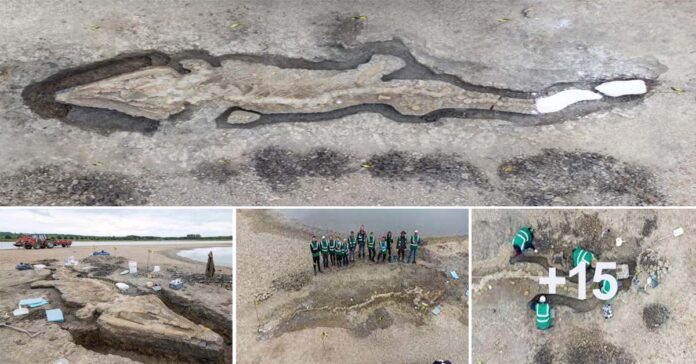A Monumental Paleontological Discovery
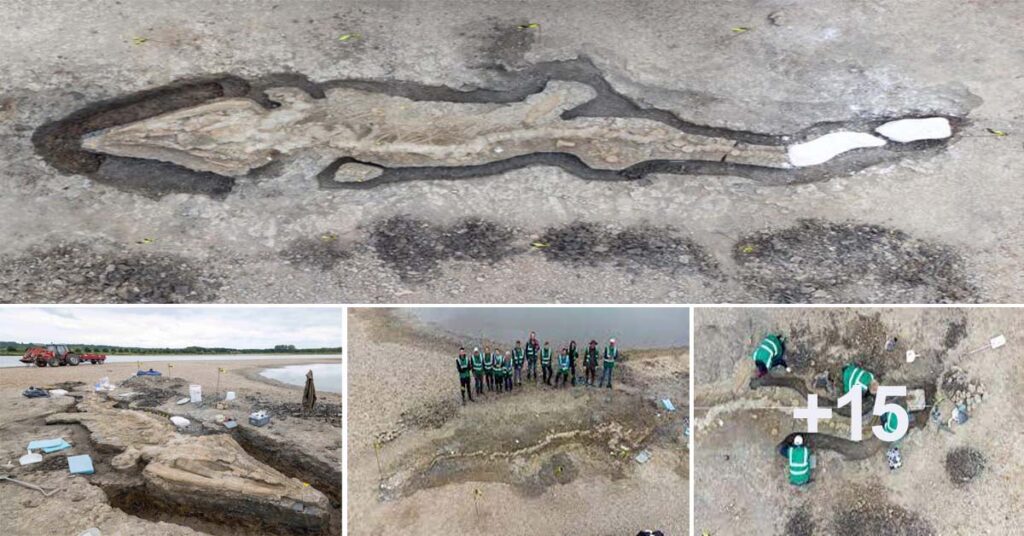
In February 2021, a remarkable discovery was made at the Rutland Water Nature Reserve in central England. Joe Davis, a member of the Leicestershire and Rutland Wildlife Trust’s water conservation team, stumbled upon what initially appeared to be clay pipes protruding from the mud during a routine draining procedure. However, upon closer inspection, it became evident that these were no ordinary remains – they were the fossilized vertebrae and jawbone of an ancient sea creature.
The Rutland Sea Dragon: A Jurassic Marvel
The excavation, which took place in August and September of the same year, revealed a nearly complete fossil spanning an astonishing 33 feet in length. Identified as an ichthyosaur, a marine reptile that resembled dolphins, this specimen dates back approximately 180 million years to the Jurassic period.
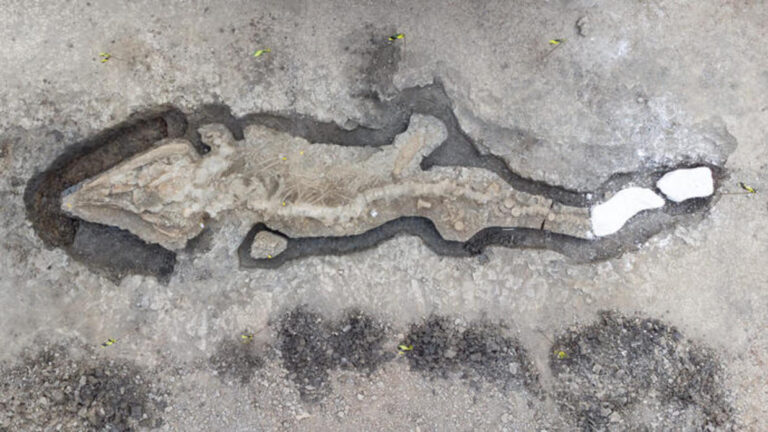
Ichthyosaur expert Dean Lomax, who played a crucial role in the research, hailed the find as “the largest ichthyosaur skeleton ever discovered in Britain.” With a skull measuring more than 6.5 feet long, the fossil, affectionately dubbed the “Rutland Sea Dragon,” was remarkably well-preserved, surpassing even the wildest expectations of the researchers.
A Rare and Awe-Inspiring Discovery
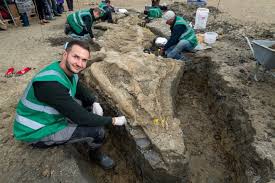
Alicia Kearns, the Member of Parliament for Rutland Melton, expressed her awe at the discovery, describing it as “utterly awe-inspiring” and “surpassing every possible expectation.” The Anglian Water company, responsible for maintaining the reservoir, emphasized the rarity of such a complete and sizeable ichthyosaur fossil, particularly within the United Kingdom.
While not the first ichthyosaur remains found in the reservoir – two incomplete and much smaller fossils were discovered during its initial construction in the 1970s – the Rutland Sea Dragon stands as a remarkable testament to the rich paleontological history of the region.
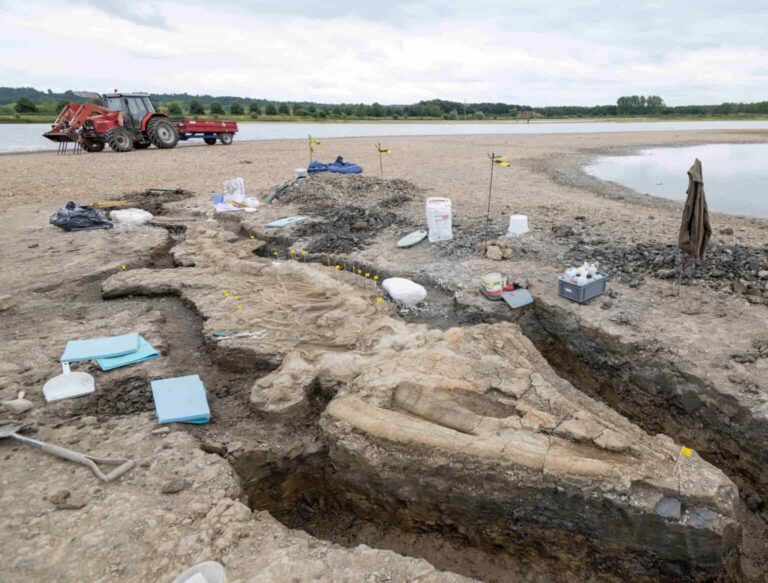
The paleontologists involved in the study are currently working on an academic paper detailing their findings, ensuring that this extraordinary discovery contributes to our understanding of these ancient marine reptiles and the world they inhabited millions of years ago.
